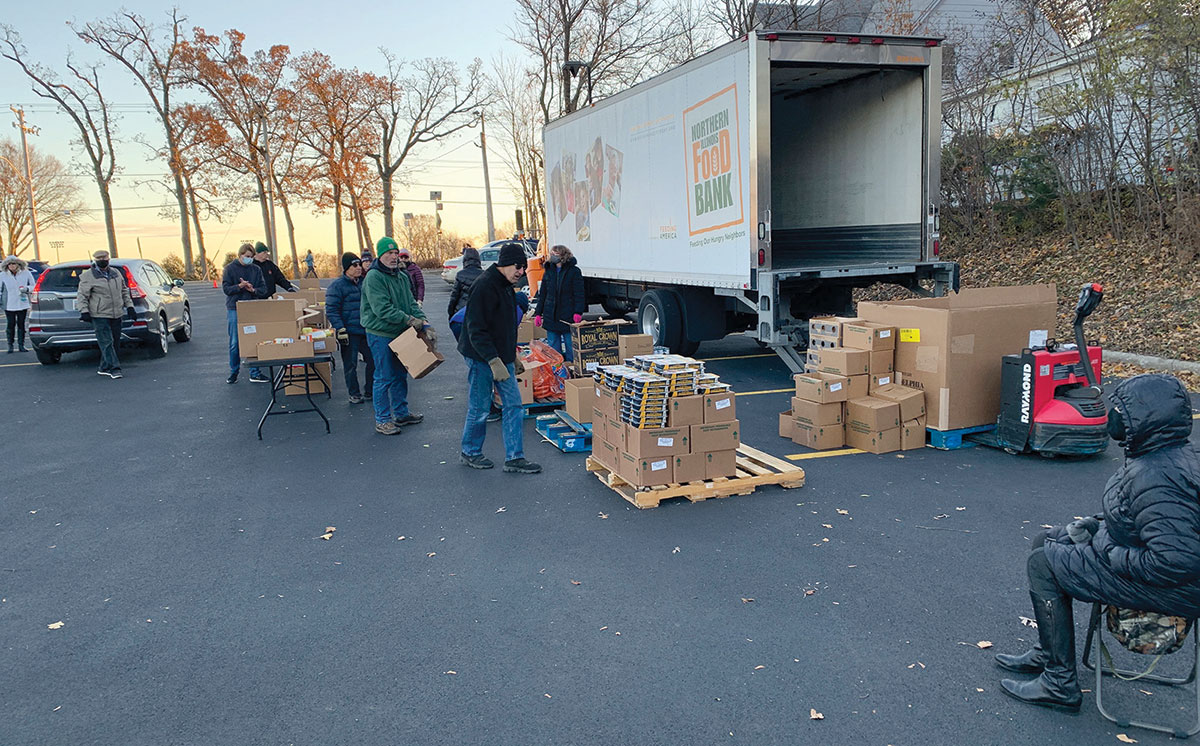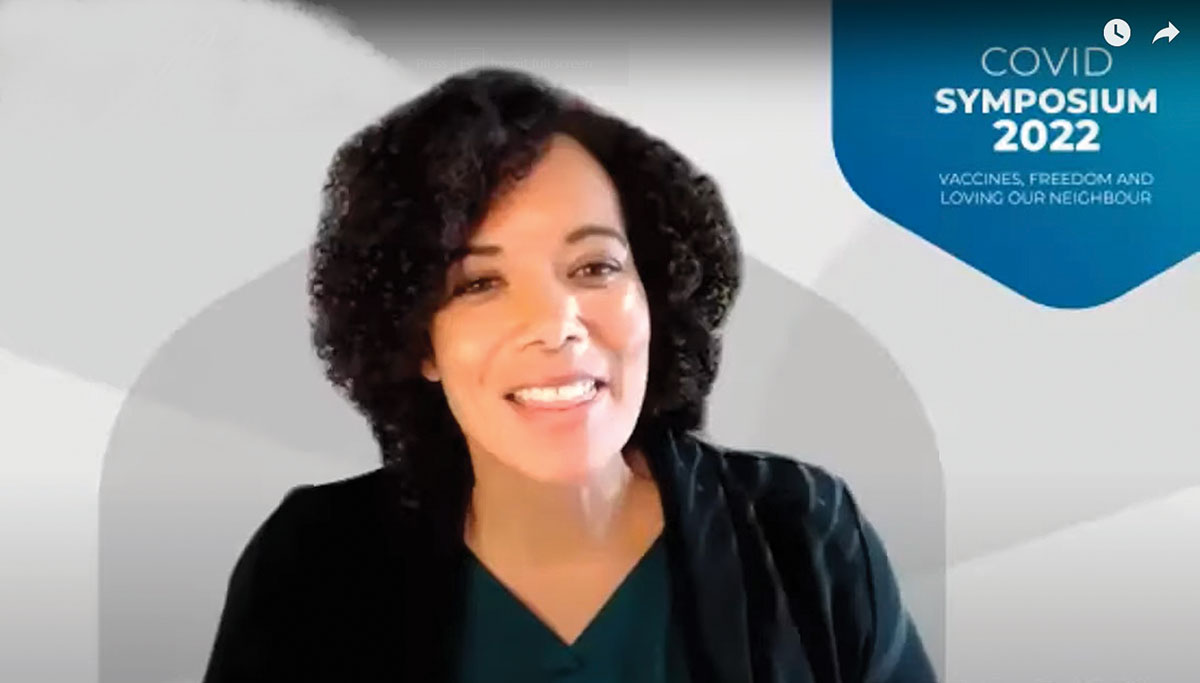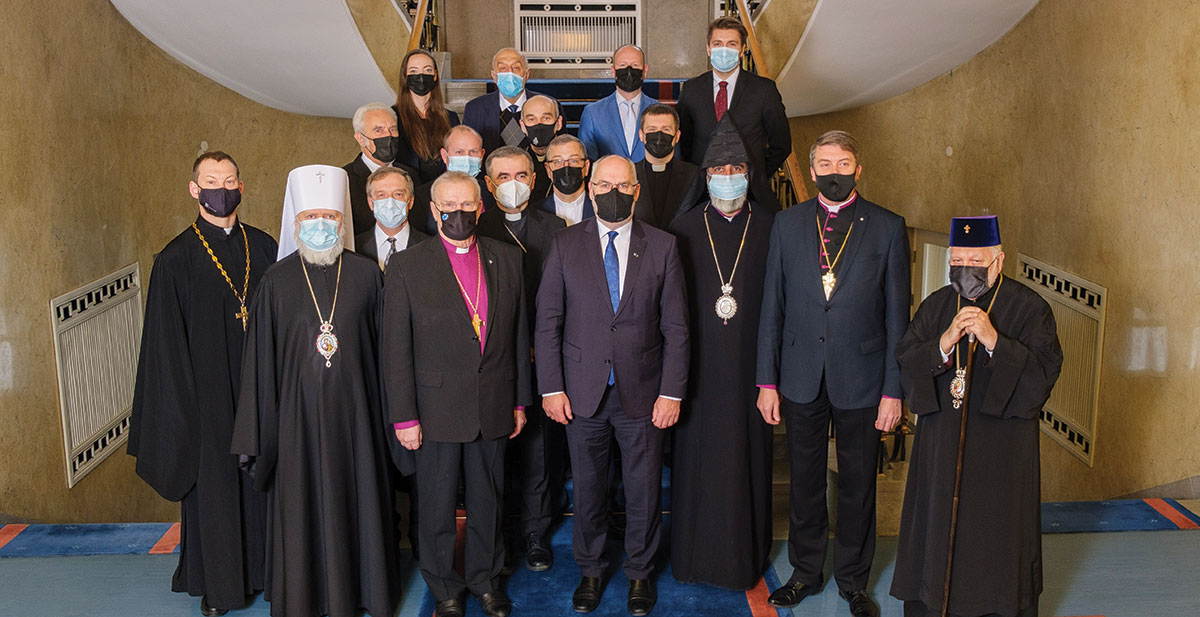
Congregations respond to pandemic with extraordinary social outreach
Hartford, Connecticut, United States
The Hartford Institute for Religion Research has released its second report examining how US congregations are navigating the COVID-19 pandemic.1 Findings show that most churches are embracing new and innovative ministry opportunities.
One congregation, for example, helped fund a food truck to provide a mobile food bank for a low-income community. Another launched a Memory Café, which provides a monthly social opportunity for anyone with dementia and their care partners. Another of the survey respondents said their church went from a monthly sandwich-making ministry to feeding up to 1,200 people per week.
This report includes 38 Christian denominational groups with 820 responses. The survey shows that since the pandemic began, 45 percent of congregations have made permanent changes to their community outreach, and more than half (54 percent) started a new ministry or expanded and increased an existing one.
“In this difficult time, congregations have shown extreme resiliency by adapting and finding new ways to address the changing needs of their communities,” said Dr. Allison Norton, coinvestigator of the study. “By intensifying community connection and social outreach, churches are largely meeting new challenges.” [Sarah Brown, newsletter of Hartford Institute for Religion Research]
- “Congregational Response to the Pandemic: Extraordinary Social Outreach in a Time of Crisis,” Hartford Institute for Religion Research, https://www.covidreligionresearch.org/research/national-survey
-research/extraordinary-social-outreach-in-a-time-of-crisis/.

Vaccines, freedom, and loving our neighbor
St. Albans, United Kingdom
The Trans-European Division of Seventh-day Adventists (TED) hosted a COVID-19 symposium on January 19, 2022, to address key coronavirus pandemic concerns, including the use of vaccines and personal liberties.
Moderated by Patrick Johnson, TED ministerial secretary, speakers included Ganoune Diop, director of the General Conference (GC) public affairs and religious liberty department (PARL), Jennifer Woods, GC director of government affairs and associate PARL director, Peter Landless, GC health ministries director, and Carlos Casiano, professor of microbiology, molecular genetics, and medicine at Loma Linda University.
The consensus was that while the Seventh-day Adventist church promotes and lives a potent, grace-filled health message, our policies should express our code of ethics, including how we treat others and solidarity with our neighbors, with a moral imperative to care. In the context of a public health emergency, vaccinations go hand in hand with the Adventist health emphasis. They do not antagonize but complement each other.
The speakers concluded with the admonition to “examine everything carefully” (1 Thess. 5:21, NASB). Not everything on the internet is true. We must be critical, informed thinkers before making inferences. We must ask, What is the premise of a claim, to avoid being victims of conspiracy theories. Becoming discerning thinkers is especially important in a post-truth world. View symposium at https://www.youtube.com/watch?v=W7mnJVaSk0s. [David Neal/TED News]

Church leaders meet with the president of Estonia
Türi, Estonia
Pastor Andres Ploompuu, president of the Estonian Conference of Seventh-day Adventists, was among religious leaders who met with Alar Karis, the president of Estonia. Among various topics, the mental health of youth and children was discussed. Church leaders shared an overview with the president of the activities and initiatives that different denominations have taken in the area. Ploompuu stated, “I emphasized that often the role of the churches in maintaining a good mental-health balance is overlooked. We always try to engage young people in different activities to help and boost their mental health.”
Estonia’s president inquired about the relationships between different denominations. “It was nice to hear all of the heads of different churches proclaim that we have good relationships while we all have our own mission. It was a day of building bridges,” added Ploompuu. “The president was exceedingly friendly, and it was obvious that he really was interested in hearing about the role of churches in our society.” [Averonika Beekmann/TED News]











